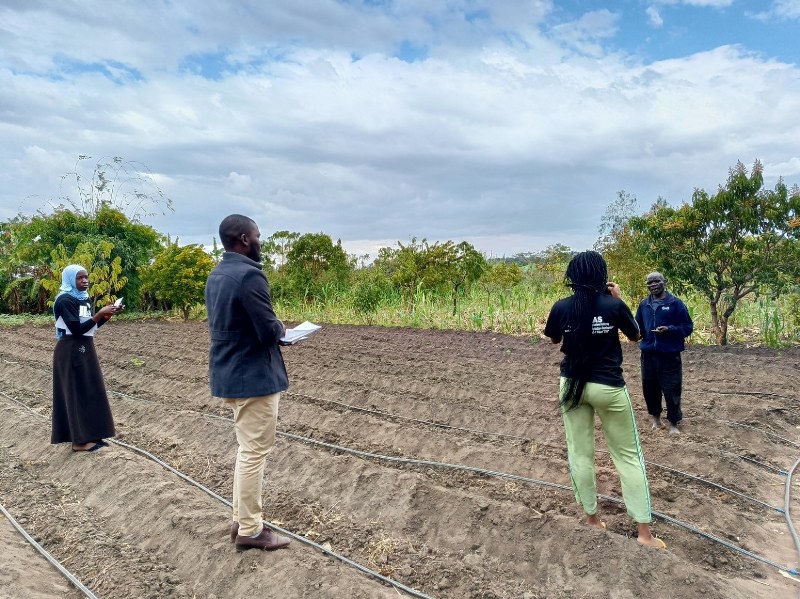In the diverse landscapes of Africa, agriculture is more than just an economic sector; it’s the lifeblood of livelihoods, a cultural cornerstone, and the bedrock of sustenance. Yet, this vast continent, teeming with natural, resources and agricultural potential, faces formidable challenges in harnessing its agricultural prowess to ensure both food security and prosperity. Enter agricultural extension services, the beacon of hope in the journey towards food system transformation.
Africa stands at a pivotal crossroads, marked by a rapidly-growing population and evolving dietary preferences that demand a more resilient and sustainable food system. To achieve food security, we must not only boost agricultural productivity, but also transform the entire food supply chain to be efficient, equitable, and environmentally sustainable. Historically undervalued, extension services hold the key to unlocking Africa’s agricultural potential. They bridge the knowledge gap by connecting farmers to the latest agricultural know-how, best practices, and innovations. These services empower both smallholders and large-scale farmers to enhance productivity, embrace sustainability, and adapt to a changing climate.
Challenges addressed by agricultural extension services
1. Low productivity: Outdated practices, limited access to modern technologies, and knowledge gaps hinder African agriculture. According to Dr. Deola Lordbanjo, a Director in the Federal Ministry of Agriculture and Food Security, in Nigeria, cassava yields are at 11 tonnes per hectare, while countries like Vietnam, Brazil, and China achieve 35 tonnes per hectare with the same resources. Agricultural extension services bridge this gap by introducing innovative techniques and technologies.
2. Food insecurity: Many African nations struggle with food insecurity, exacerbated by inefficient value chains and post-harvest losses. According to the Food and Agriculture Organisation of the United Nations (FAO), In the Democratic Republic of Congo, more than 25 million people are grappling with severe hunger. Agricultural extension services equip farmers with the skills to enhance food production and security.
3. Sustainable practices: Unsustainable farming practices such as overuse of chemicals and land degradation, jeopardise agriculture’s future. Extension services introduce environmentally-friendly and sustainable practices to reduce the ecological footprint of farming.
4. Climate change resilience: Due to Africa’s vulnerability to climate change, characterised by erratic weather patterns, prolonged droughts, and unpredictable rainfall, significant challenges are posed to agriculture. Agricultural extension services play a crucial role in helping farmers adapt to changes by using climate-smart techniques.
Addressing critical environmental concerns
1. Climate change impact: The effects of climate change disrupt planting seasons and reduce crop yields. Agricultural extension services help farmers adapt to these impacts through resilient farming techniques.
2. Soil erosion and degradation: Soil degradation and erosion affect agricultural productivity. Extension services provide knowledge and resources to mitigate soil erosion and restore soil health.
3. Deforestation: The expansion of agriculture often leads to deforestation. Extension services educate farmers on sustainable land use practices to counteract deforestation.
4. Biodiversity loss: Agricultural expansion can potentially threaten biodiversity, as extension services promote conservation and biodiversity-friendly practices.
5. Water scarcity: Water scarcity is a critical issue in many parts of Africa. According to World Vision, Niger alone faces severe water access challenges, with 54% lacking access to clean water. The majority, engaged in farming, grapple with water shortages and frequent droughts in arid, desert-like conditions. Extension services introduce water-efficient techniques to address this challenge.
Enhancing food security
1. Hunger and malnutrition: High levels of hunger and malnutrition exist in many African regions. Agricultural extension services actively work to increase food production and improve dietary diversity.
2. Diverse dietary preferences: Dietary preferences are evolving with urbanisation and changing consumer demands. Extension services help farmers adapt by introducing new crops and varieties.
3. Market access: Access to local and global food markets is crucial for food security. Extension services assist farmers in connecting with markets and understanding market dynamics.
4. Balancing agricultural production with population growth: African countries often struggle to produce enough food to meet the demands of their growing populations. Agricultural extension services aim to enhance productivity to bridge this gap.
5. Economic aspects: Agriculture’s economic impact is closely tied to food security. Extension services promote sustainable practices that can lead to increased income for farming communities.
Driving food system transformation
Agricultural extension services act as catalysts for a broader transformation of the food system in Africa. They promote sustainable practices and enhance productivity, improve value chains, diversify diets, build resilience to climate change, and empower local communities. Agricultural extension services play a vital role in addressing the critical challenges of our time, ranging from addressing climate change impacts to food security. As we move forward, the continued strengthening and support of these services would be essential in driving lasting food system transformation across the African continent.



